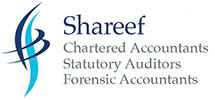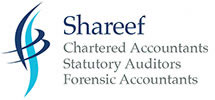
The FRC is the UK’s audit regulator. They oversee statutory audit in the UK and issue audit and assurance standards and guidance. They monitor and enforce Public Interest Entity audit quality. They set eligibility criteria for auditors and oversee delegated regulatory tasks carried out by professional bodies where our firm is a member of the ICAEW (The Institute of Chartered Accountants in England & Wales). Our work is overseen and regulated by the ICAEW.
Our experienced team take a proactive approach to audit services, working closely with you to ensure the audit process is completed as efficiently as possible while minimising any disruptions to your business and staff. Using the latest audit software, our approach is risk-based and focuses on what matters. We report proactively on where we see weaknesses or inefficiencies. We report where appropriate, advising your business on matters which came to our attention during the audit to add commercial value to your business.
Our audit approach is based on developing a sound understanding of the business, the major issues it faces, and its long-term objectives.
We can identify strengths and weaknesses in your systems and finances, helping you to improve profitability.
Using the latest audit software, our approach is risk-based and focuses on what matters. We report proactively on where we see weaknesses or inefficiencies.
Our core auditing services include statutory audits, internal audits and due diligence.
In addition, we offer specialist reviews and support to those clients where their governing bodies require additional reviews, such as Solicitors, charities and Travel Agents.
Statutory audit under Companies Act 2006
A company’s annual accounts for a financial year must be audited unless the company Is exempt from audit by meeting specific financial thresholds;
The financial criteria for assessing if a company is small are that two of the following conditions must be met for two consecutive years:
- Turnover - less than £10.2 million;
- Gross assets - less than £5.1 million;
- Employees - less than 50.
If the company is part of a worldwide group of companies, you must consider all companies in the entire group which are under the same control when assessing the criteria.
Additionally, the company must not be ineligible for any part of the year (PLCs, banking, e-money issuer and insurance companies, etc., listed under CA 2006 s384);
The company must not be part of a group that does not qualify as it includes ineligible companies under CA 2006 s384.
Even if a company is exempt due to the above an audit may be required if members with 10% of a class of shares request an audit.
Our audit team in order to reach an audit opinion will:
- Carry out procedures to obtain audit evidence to provide them with reasonable assurance that the financial statements are free of material misstatement.
- Ensure that the financial statements have been prepared in accordance with the relevant legislation & accounting standards.
- Assess whether the business is a going concern.
We as auditors of a company:
- Have a right of access at all times to the company’s books, accounts and vouchers (in whatever form they are held), and
- May require an officer or employee, or anyone accountable for any of the company’s books, to provide information or explanations as are thought necessary for the performance of the auditors’ duties.
- The audit does not relieve the directors of any of their responsibilities as they are still responsible for the preparation and presentation of the financial statements. It is not the auditors’ function to prevent fraud and/or error, this is the responsibility of the directors.
How to prepare for a cost-effective audit?
To ensure that an audit runs as efficiently as possible, we suggest the following;
- Ensure all staff are available during the time we as your auditors are scheduled to carry out your audit. Agree a timetable for the audit in advance to adequately plan time to gather information ready for audit.
- You must deliver the information asked for as soon as possible and if deadlines are set adhere to those. The information provided should be final. Get sign off from the board on the figures before providing them.
- A small change to the numbers can result in a huge amount of additional audit work going back and updating the audit file.
- Clearly organise information provided, ideally utilising the references provided with the request.
Audit under the Charities Act
A charity is governed by the Charity Commission which keeps a register of charities and regulates charities to ensure they comply with the Charities Act 2016.
Charitable company
All incorporated charities registered at Companies House must be limited by guarantee. Being a private company limited by guarantee means that the trustees have limited liability for the charitable company’s debts.
A charitable company must follow rules under Companies Act 2016 (regulated by Companies House), as well as Charities Act 2016 (regulated by Charity Commission).
Companies House can list charges on the register, so if you intend to take on debt this is the preferred route.
Charitable Incorporated Organisation (CIO)
This is a company registered with Charity Commission, but it does not need to register with Companies House. The trustees have limited liability for the company’s liabilities reducing their exposure.
Unincorporated charitable organisation
Largely used for a group of volunteers to run a charity for a common purpose such as Sports associations This type of organisation cannot employ staff or have their own premises.
Audit or independent examination?
Charities with income between £250k and £1m will require an Independent Examination carried out by a firm of statutory auditors, such as Shareef & Co Chartered Accountants. Where income exceeds £1 million then a statutory audit is mandatory.
Independent Examination
Charities with income between £250k and £1m will require an Independent Examination carried out by a firm of statutory auditors, such as Shareef & Co Chartered Accountants. Where income is below £250K a simple set of accounts is sufficient without the requirement of an independent examination.
The Charity and not-for-profit sector has distinctive needs and faces some specific risks - our Charity Team have the relevant experience and specialist knowledge in this area. In addition to providing accounting, audit and assurance services we frequently provide advice and guidance relating to the day-to-day challenges faced by our charity clients, such as dealing with the Charity Commissioners and HMRC.
Grant Reports
Organisations that receive grant income from Councils or Institutions such as Innovate UK will frequently require an Accountant’s Report providing assurance that the grant income was used for the specific purpose it was intended for. The report must state that a ‘reasonable level of assurance’, as defined by the iCAEW and conforming to all applicable International Standards on Auditing
Our experienced team will prepare these reports as and when requested by you.



 This website uses both its own and third-party cookies to analyze our services and navigation on our website in order to improve its contents (analytical purposes: measure visits and sources of web traffic). The legal basis is the consent of the user, except in the case of basic cookies, which are essential to navigate this website.
This website uses both its own and third-party cookies to analyze our services and navigation on our website in order to improve its contents (analytical purposes: measure visits and sources of web traffic). The legal basis is the consent of the user, except in the case of basic cookies, which are essential to navigate this website.